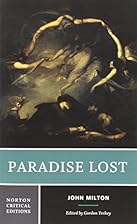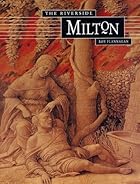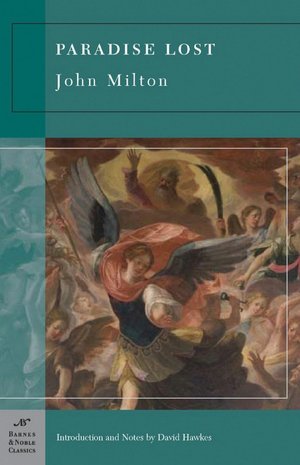For the past year, I've been trying to understand Paradise Lost, by John Milton. My first attempt back in 4/4/2012 was mostly unsuccessful, since I got through the poem, but didn't really understand it. I plan on trying again, this time going through it very slowly and carefully with MUCH deliberation. I will also read some retellings, criticisms, and interpretations along the way. This will be a long an bumpy ride. I'm working from three different texts, and one narration:
The Barnes and Noble Edition, ed. David Hawkes
If you get this edition, be sure to buy a hard copy and not the ebook, because the end-of-page footnotes are very awkward on the Nook.
The Norton Critical Edition, ed. Gordon Teskey
 The text of this book is easiest for reading. Teskey modernized the spelling and punctuation within the limits of Milton's syntax. Teskey says that the punctuation in the original printings shouldn't be assumed to be the poet's intention. At the time of publication, punctuation was the job of copyists and printers, not of poets. Therefore, modernized punctuation allows for greater clarity without losing Milton's original intent.
The text of this book is easiest for reading. Teskey modernized the spelling and punctuation within the limits of Milton's syntax. Teskey says that the punctuation in the original printings shouldn't be assumed to be the poet's intention. At the time of publication, punctuation was the job of copyists and printers, not of poets. Therefore, modernized punctuation allows for greater clarity without losing Milton's original intent.
Helpful line-by-line footnotes are provided at the bottom of each page. These help with comprehension of Milton's language.
The Riverside Milton, ed. Roy Flannagan

This book includes all of Milton's major works. It has copious footnotes that are very helpful for understanding the background and context.
Paradise Lost & Paradise Regained, narrated by Charloton Griffon
Excellent narration! Highly recommended. Listening to this while reading helped immensely in my comprehension. It comes with a 2 hour biography of Milton at the beginning. I liked this extra info, but it can be skipped if you don't want to listen to it.
Additionally, I've got three lectures (or sets of lectures) from The Great Courses that I'm working with:
The Western Literary Canon, Lecture 22; Professor John M Bowers
Why Evil Exists, Lecture 18; Professor Charles Matthews
Life and Writings of John Milton; Professor Seth Lerer
Posts about Paradise Lost
Introduction to my quest to understand
Milton - Epic Evil
The Literary Background of Paradise Lost
Book 1, Lines 1-191
Supplementary Books on Paradise Lost, Milton, or Historical Background
A Preface to Paradise Lost, by C. S. Lewis
Mentions or Retellings of Paradise Lost
The Subtle Knife, by Philip Pullman
The Amber Spyglass, by Philip Pullman
The Bells, by Edgar Allan Poe
The Philosophy of Composition, by Edgar Allan Poe
The Invisible Man, by H. G. Wells
Helpful Links
Darkness Visible



this is quite a tough challenge you've taken on. Paradise Lost is wonderful but it's not for the faint hearted because Milton's style is so dense with imagery and allusion. I love Book 9 (the temptation) and even though it is 30 something years since I studied it at school I can still remember the final lines. Somewhat nerdy maybe!
ReplyDeleteYeah, it most certainly is dense. There are so many different layers of understanding. There's the literal meaning layer, then there's the religious allegory, the political allegory, the personal (blindness) allegory, the poetic imagery, the literary allusions, and on and on. Right now, I'm just focusing on literal and then I'll go back and try to get some understanding of the allegories.
DeleteDo you find the Norton edition considerable better than the B&N for understanding the text? I'm debating which edition to get.
ReplyDeleteI'd say the Norton Edition is better for understanding the text, yes. The "modernized" spelling and punctuation clarifies the meaning a lot. Mostly, it's a punctuation issue for me. Teskey's punctuation helps a lot for understanding the flow of the verse. The notes in the Norton Edition are less copious than the ones in the Barnes and Noble Edition, but they provide enough explanation for me.
DeleteBy far, the best notes are in the Riverside Milton.
Thanks for your fast response! I'm normally partial to Norton editions, but the price on the B&N is hard to beat.
Delete